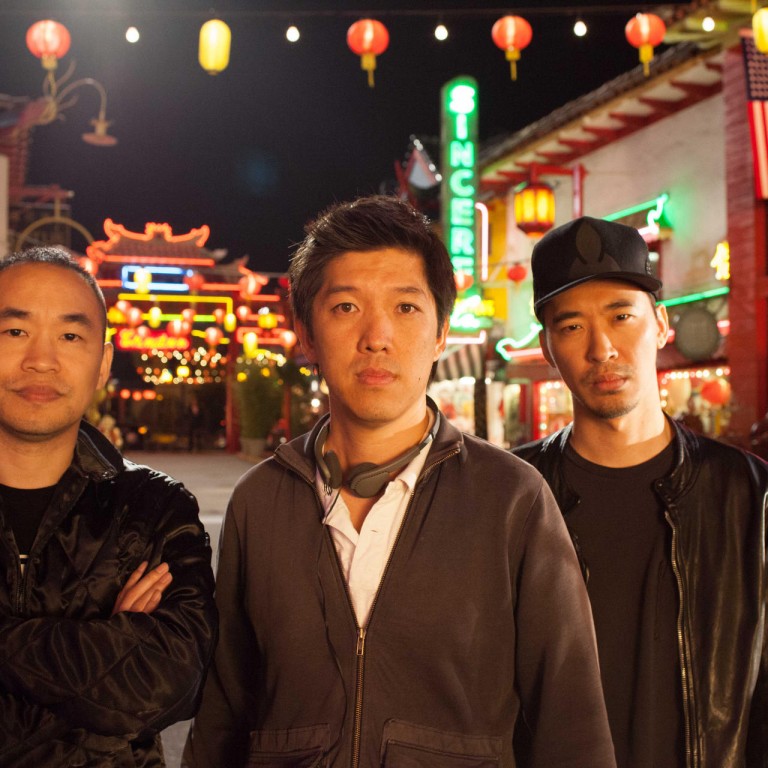
Postcard: Los Angeles
A couple of weeks before opened earlier this year, producer Dan Lin professed to being a tad nervous. Sure, the early buzz was hugely positive, and everyone involved with the project figured they had a solid production on their hands. "But still," thought Lin, "you never know."
He needn't have worried. The animated adventure comedy has become a global phenomenon and earned US$460 million in worldwide ticket sales.
For the Taipei-born Lin, it wasn't just the financial success of the film that was satisfying. "At a time when there is so much conflict in the world, people loved seeing a movie that was joyful and that celebrated imagination," he says. Lin has received notes from parents telling him that their kids have been inspired by the movie to play with Lego again.
A sequel was quickly announced. Scheduled for release in 2017, it will be directed by Chris McKay, the animation co-director on the first film. Lin is co-producing with the first 's writer-directors, Phil Lord and Christopher Miller.
"I know we've worn out the word 'awesome'," he says. "But that's really what happened here. The movie became part of the zeitgeist. We knew that for sure when the theatres were full at night, long after kids had gone to bed, because it wasn't just a kid's movie."
Lin is now one of Hollywood's busiest and most sought-after producers. Related by marriage to well-known musician brothers Stanley and Jeff Huang, who have now diversified into acting in Chinese films, Lin is working on potential collaborations with them. The producer's interest in John Woo movies compelled him to develop , and he is currently working on an adaptation of Steven King's to be directed by Cary Fukunaga.
Lin is now branching out into US-China co-productions, capitalising on his position as the only Chinese-speaking producer in Hollywood making big films. "I'm looking at movies that can appeal to different regions," he says. "Coming from Taiwan, but having my Western background, I want to be able to make movies that cross boundaries. Family films, action films - those all play well in Asia."
His ultimate goal is to make movies in China, particularly action epics, that will appeal to the Chinese as well as American markets. To that end, he is currently working on , penned by Kurt Johnstad, whose previous scriptwriting credits include the two films and .
The period epic is about the first encounter between the Roman Empire and the Han Dynasty. It tells the story of Roman soldiers sold into slavery in what's now Mongolia, and then joining forces with Chinese warriors. "It's the Chinese version of , says Lin. "Getting a movie like that made is the holy grail. It's a big budget, a co-production, requires a lot of resources."
At the age of five, Lin moved with his family from Hong Kong to the US, taking up residence in Connecticut. "My parents didn't speak much English when we moved here," he says. "Watching movies was my way to observe American culture. I never knew that there was a career behind the camera."
After graduating from the University of Pennsylvania, Lin studied at Harvard, but between his first and second years, he took a summer internship with Lorenzo Di Bonaventura, at the time the president of worldwide production at Warner Bros.
"That was a game changer for me," says Lin. "I fell in love with movie-making. I started to understand what it meant to be a studio executive and a producer."
Offered a position at Warner Bros after he finished his graduate studies, he became senior vice-president of production overseeing films like (Martin Scorsese's remake of Hong Kong's ) and (Scorsese's biopic of Howard Hughes), and then formed Lin Pictures in 2007. In his seventh year as the head of his own production company, Lin says that his point of view has crystallised.
"I didn't go to film school," he says. "At the time, I didn't have an overriding point of view. I've realised that the best training is doing the job.
"But you don't know until you do it just how many big gyrations are involved in producing. There's a lot going on behind that curtain."

